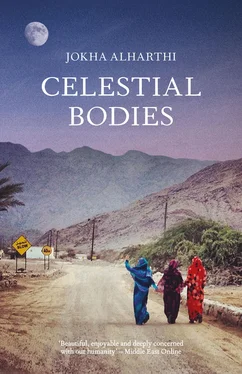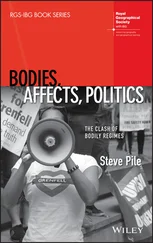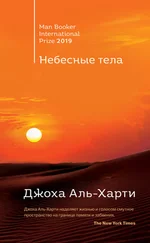I couldn’t sleep that night. Everyone had similar things to say about witchery and the jinn. Only Zarifa never joined in when people talked about my mother’s illness. But Zarifa was dead now. Did questions like these have anything to do with her insistence on tasting every dish before I ate from it, all through my childhood? I don’t know... I don’t know... How would I know, anyway?
As the last drumbeats sounded at Asma’s wedding Azzan was rolling about on the cool sand with Najiya. He stared into her face — the most beautiful sight he had seen in his life — and recited some lines by al-Mutanabbi that had come to him just then.
I stake my word on the desert gazelle and what she’s free of —
no slur in her speech nor pencilled-on eyebrows
The faces of city girls seen as pretty are nothing
to the faces of the Bedouin, those ra‘aabib
What passes for handsome in the eyes of settled folk
happens with perfumes and padding but nomad girls need none.
Najiya’s deep laughter rocketed through the desert silence. That’s your friend, the one called al-Mutanabbi, the one you told me about?
Yes, he’s the one, Najiya, Azzan replied with a sigh.
She started laughing again. So, what are these ra‘aabib he talks about?
Azzan sat up and brushed the sand off. A ra‘buba, Najiya, is a woman with a gorgeously full body. And the gazelle of the desert — that’s you.
Oh, really. She sounded annoyed. Do I chew my words, then, like a gazelle chews her cud?
You chew my heart, Najiya. Aah, Najiya, Judge Yusuf — may God’s mercy surround him — used to talk to me about hearts. On and on he would go, and I didn’t understand any of what he was saying. Now I think I do understand it all.
All?
Azzan, my boy! Judge Yusuf would say. Your name is a word that holds secrets — it is a secret in itself. Listen — the first letter in your name, ayn, is a cold letter in the fourth degree, and it holds two levels of cold moisture, which is the first of the secrets of the throne, the ‘arsh, which also begins with the letter ayn, just like your name. Ayn is the first of its letters and the first of the worlds it invented — and worlds, awalim, starts with ayn too. Your name holds the cosmos, Azzan.
Najiya didn’t understand any of this. Hearing Judge Yusuf’s name didn’t bring her any comfort, either. But Azzan went on.
When he married Maryam, he told me, his heart was no longer just a mirror in which the beauty of the universe shone, like it was before. Now his heart was completely taken up by Maryam and the children. One time he mentioned to me that he regretted having ignored the advice of the great master al-Ghazali, who told his disciple to keep well away from marriage. To refuse it when his family insisted, to turn it down in the time of its asking, when his family presented it as his work in the world.
Is this Ghazali the fellow who wrote the book that turns readers insane? Najiya grumbled. Who is this disciple, and what does that mean, in the time of its asking?
God show you his mercy, Judge Yusuf! When that man died not even a single hair on his head had gone white. Al-Ghazali — Najiya, he wrote a lot of books, and they don’t make people go insane. But most people don’t understand them. They want to be kept happy, to stay comfortable, so they don’t usually try to meet all the conditions that someone like al-Ghazali sets for them.
Are you happy and comfortable, Azzan?
He smiled and closed his eyes. How could I be, when my heart is chewed up in your beautiful mouth? How will my heart become a pure mirror, Moon of mine?
I am your mirror.
They fell into silence.
The hills around them were silent. In Azzan’s ears echoed remnants of sounds: the drums at his daughter’s wedding, Qamar’s silver anklets, her laughing that seemed itself a stream of blessed musk, and her stories about the hand-worked fabrics that merchants bought from her to sell to tourists in Matrah. The voices and sounds faded, even al-Mutanabbi’s voice, declaring himself to all in a famous line as the voice known to steeds and the night, to the desert and the sword and the spear, to ink and the pen. All the voices, all the sounds became fading circles spinning in his head before they quieted, making room for a single deep voice. Judge Yusuf’s voice.
He who faithfully strives to understand and do what is best; who frees himself from excessive appetites and anger and other blameworthy acts and ugly deeds; who sits in a place empty of others and closes the eye of his senses to open the eye of the hidden and to listen; who keeps his heart in the world of God’s kingdom, uttering the name of the Almighty, preserving this name in his heart always, and of course on his tongue, until he is no longer a separate being, a person in the world; until he sees naught but God, praise be to His Exaltedness. To this striving person will be opened a window. When he looks through it, a person who is able will perceive more than ordinary folk will. Though he be awake, this discerning person will perceive the stuff of dreams. The spirits of the angels and prophets will come to him, and so will other beautiful and mighty images, the kingdom of heaven and the kingdom of earth. He will have visions that he cannot explain or describe. As our Prophet, peace and blessings be upon him, said: The earth was concealed to me yet I saw its east and its west both. Azzan, if you would be this person, for seven days commit yourself to repeating only the name of God. Fast in the daytime and remain awake for as much of the night as you can. Detach yourself from others; do not speak to a soul, and the wonders of creation will be revealed to you. Do this for a further seven days and you will receive the grace of seeing the wonders of the heavens. Another seven, you will visit the wonders of the highest kingdom. Should you reach forty days God will show you His miracles and impart His hidden knowledge.
Azzan felt a shudder run through his body and sweat covered him. Najiya leaned toward him. What’s the matter?
He gave her a look of terror. I must go.
He snatched up his slippers and was gone.
Judge Yusuf, I am afraid. Afraid! My heart’s been snatched away and it sits high in the eagles’ nest. The black expanses that shadow my heart crowd all of the other images out, I cannot see them in its mirror. I cannot see, Judge Yusuf. I cannot see anything.
Zarifa told me that as a tiny baby I cried endlessly. After her husband made up with her and she went back to him, my aunt wanted to take me with her but my father turned her down flat. He assigned Zarifa to raise me. He bought several milking ewes but their milk wasn’t enough to quiet me. So sometimes Zarifa packed my nose with snuff to make me go to sleep. Whenever she sensed me crying because my ears hurt, she poured a few drops of coffee into my ear canals. Or she took me to nursing women, asking them to squeeze drops of their milk into my eyes, since she thought I might be crying because my eyes hurt. When I was a little bigger she strung amulets around my neck to protect me from envy and convinced my father to pierce my ears so she could hang silver earrings there. What she called the night-folk might not recognise that I was a boy and snatch me away just as they had kidnapped my mother. She embroidered the caps I wore with her own hands. It certainly didn’t diminish her pride that on feast days I was the only child in al-Awafi who wore slippers and a jubba decorated with tiny mirror-sequins procured from India.
Zarifa would recount all of this, chuckling. She raised me until the coming of The Great Anger as she called it, the massive argument between her and my father; I never learned the causes of it. He punished her by abandoning her and then marrying her off to the most eccentric and aggressive slave he had, Habib, who was at least ten years her junior.
Читать дальше












